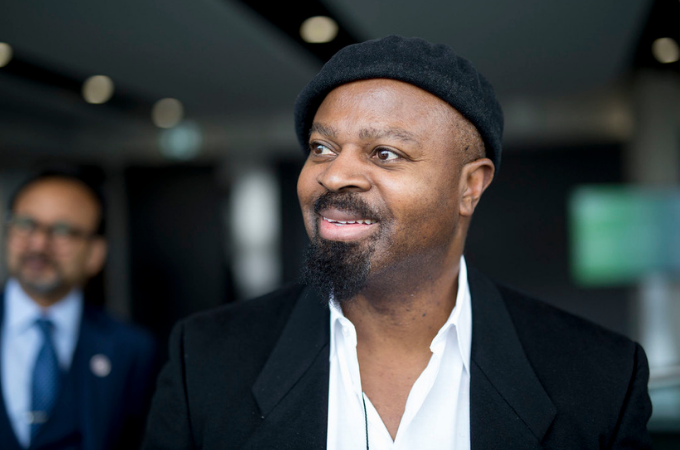
Author of over 20 books and Booker Prize winner, Ben Okri is a prominent figure in the literary world. His writing inspires readers the world over. Critics and scholars have celebrated the many ways his work re-imagines African lives and invents stunningly beautiful worlds from Africa’s myths, legends, histories, and folklore.
When I thought of someone with whom to talk through someone of the urgent issues facing our time, issues having to do with African literature, it had to be Okri. First, because his life and work have an interesting relationship to time. They straddle two millennia. But also because as someone who arrived on the literary scene in the early ’90s, he has seen the best and the worst of contemporary African literary culture. I knew he’d bring clarity and insight to the current state of things.
In this interview conducted via email, we talk about social media, decolonization, the future of African literature, the power in dreaming, and more.
Ainehi Edoro-Glines
From Achebe, to Awoonor, to Emecheta, the last 10 years has seen a long line of literary greats die and become ancestors. What should we make of the fact that we are the generation living to see these people, who started it all, pass on to the beyond?
Ben Okri
It is an important stage for our literature. In a sense the real literature of a people begins with the passing of writers into the realm of ancestors. Literature begins with the dead. For that is when we can start to see the meanings of their works which may have been concealed from us when they were alive. Their body of work derives new authority from death. Then a literature begins to cohere. The books read us. They move from their fixed sphere of time and come alive in a new way in ours. They are no longer what we thought they were. Then the works really begin to speak. It is only now, with many of the pioneers moving on to a higher sphere, that the literature moves to a higher sphere too. They take us up with them. First books begin as publicity and marketing. Often, before their time, they are taught. Then the books are about the authors. If we see ourselves and our times in them we do so dimly. With the passing of the years some of the books become living classics. But really they are provisionally so.
For a saint to be canonized at least three miracles are required. The true canonization of a book shares a similar rigor. Often they have to perform the feat of resurrection: being forgotten and then being re-discovered, or being neglected and being read in a new way. But they too must perform a literary miracle: they must prove to be more than the books we thought they were and prove to be more relevant in the successive ages than they were in their own time. Books that cannot renew themselves perish, regardless of how much tribal or racial advocacy are lavished on keeping them alive. So we don’t know the true value of books while the authors live. They must die in order that the books might live, if they will live at all. We are in an interim stage of beginning to discover which of the books of the recent literary ancestors will prove of surprising and lasting value. We who are living always think it is a certainty, and that the books that seemed to be of unshakable value when the writer was alive will still prove to be so when they die. But the death of the writer has many surprises for the value of their books afterwards. With the death of our pioneer writers we will begin to glimpse the contours of our true literature. But in truth, we still have decades and centuries to discover what will truly endure, what will constitute our lasting canon. And that happens when all those who can influence how we see certain books have passed away and only the books can speak to the future for themselves. In the end it is only the work that can do it. Publicity, hype, fall away. The work stands alone in a community with the other works that live through time. The works become the living presence of the ancestors, and their true gift to us radiates without end.
Ainehi Edoro-Glines
Every literary moment is burdened by the anxiety of influence from an earlier generation. Perhaps that’s why I’m curious about what you think of the current African literary moment. What would you say characterizes this moment, our moment from what came before?
Ben Okri
It is impossible for me to say what characterizes this moment. We are too close to the works and the personalities to say. All that can be said for sure is that there is a kind of an explosion of the literature. Voices have come awake with fury and celebration. All kinds of voices. It could be said that this is the moment in which the writers discovered the power, freedom and possibility of literature for all the dimensions of their personal, aesthetic, and political purposes. This is really how a literature comes into being. It requires these numbers, this pollination, this fruitfulness and richness, from the continent and all over the world. This is how the world realizes that a force has been born and has come of age in the literatures of the world. We are changing the possibilities of what literature can be. I have always felt that when we discover the power and beauty of our voice and vision we would alter the boundaries of literature irrevocably. We are realizing that there really are no fixed rules. The rules that were set worked for those who set the rules. But no people can determine forever and all time what literature is and can be. Five thousand years is a short time in relation to the human past and in relation to the future perhaps even shorter. Literature will become whatever we can make work that speaks to the human spirit in new ways. We have to change the rules. Expand them. Enlarge them. Show how rich and immeasurable the human spirit really is. Our greatest gift would be to give the world a new kind of literature, not to merely mimic what has gone before. We must make our new forms out of the truth of our spirit and our vision. Otherwise we will forever be limited in our dreams and second rate in our forms. Three things are therefore necessary: mastery, freedom, and love.
Ainehi Edoro-Glines
People like yourself who were writing at the end of the last century have seen about 30 decades of literature pass by. What does 30 years mean in literary time? What has it meant for you?
Ben Okri
Thirty years is a short time in literary terms. But it has been our time. In the last thirty years, I have watched a literature rise from protest and self-definition, from anti-colonial, Africanist dimensions to satires and cries against the failures of independence, from prison writings and social realisms into something altogether different but into which all that has gone before has played a part. Now the literature is international. Now all genres are tackled. Detective, sci fi, afrofuturistic, polyglot, spirit inflected, epic poems, memoirs, autobiographies, travel writing, hybrid forms, experimental – you name it and the literature bears the imprint of it. The literature has become confident and successful. The writers now regularly feature on bestseller lists and have high profiles, command big advances. Some have achieved substantial fame. Some have cult statuses. The literature rocks. But its confidence is still youthful. With three Nobel prize winners, Booker prize winners, Pulitzers and winners of major national and international prizes, the literature has proven its capacity to be among the best. The only thing missing is cohesion, the coming together, the conscious strengthening of the tradition and the union of practitioners. We ought to have a strong constructive voice that can move powerfully for our support and protection. We are too scattered. The Latin Americans have that esprit de corps. They defend and promote their literature even as they compete with one another. American literature is so strong that it has a modern American classics series, through which it keeps alive the best in its tradition. English literature is more than an industry. It is something greater than England itself. It is a mental continent in its own right. We should of course fight for our individual places, but the real strength is in the power of the literature as a whole. Sometimes a great literature can have more power than the people it comes from.
Ainehi Edoro-Glines
Social media is this confounding new thing redefining various aspects of social life. I don’t know if you’re aware of your social media presence. On Instagram, the #benokri hashtag has been used over 5,000 times. On the literary social media platform Goodreads, your work has been rated by over 17,000 users and has accumulated over 1500 reviews. Have you given thought to what it means to be an author in the age of social media?
Ben Okri
The writer has one great responsibility and that is to write well. What that writing well is used for is another matter. For some it is political, for others aesthetic, for a few it is spiritual. Or a mixture of all the above. But whatever it is, the absolute minimum is writing well. Learning an art takes a lifetime, and I believe we still learn when we are dead and our books after our death strive ever to re-write and improve themselves, hence all the new interpretations to which they give rise (only half kidding). But social media is a choice. If you have the time to do your work well, and God knows that is difficult enough, and then engage in social media activities as part of your work then great. I know a few who manage both reasonably well. But for me, the work has to bear the burden, the full burden, of my spirit and time. Life is a trade off. I want vast numbers of readers like the next writer. But all that is worthless if the writing is not of the highest. I would rather write a masterpiece and have a handful of readers in my time, and millions more in the future, than have millions of readers now and no one in the future. Literature is an endurance activity. Nothing has changed in that regard except marketing and publicity. But all the marketing and publicity cannot make a book better than it really is. Time is limited, and it passes faster than we realize. I would rather invest what time I have left on the perfection of the work. If I feature somehow in social media, then wonderful.
Ainehi Edoro-Glines
When I think of how writers of past generations held on to the decolonizing mission as the driving force for their creative work, I wonder about what our driving mission is today. In other words, what comprises the political atmosphere galvanizing our literary moment? Is it still decolonization or something entirely different?
Ben Okri
The galvanizing mission of our time is freedom. Decolonization is still a driving force because the destructive legacy of colonialism remains. We still have to decolonize our minds and our nations. But added to that are a raft of contemporary issues. Identity, gender, authenticity, the tyranny of forms, in short to be or not to be. Are we going to be who we are or are we going to be how they would like us, how they can understand us? Do we re-make ourselves in their image, accessible and marketable, or do we dare to shape ourselves, tell our stories any way they need to be told, defying past standards but with rigor, with mastery? Do we dare to be who we can be, or do we merely succumb to the mediocrity of success? I sense a hunger in the writers of our time to be their own creation. We have to drag publishers and critics and readers along on our journey, by the sheer force of our conviction to be so inevitably ourselves.
Ainehi Edoro-Glines
The first time we met was at the African Book Festival in Berlin, a brilliant project run by Karla Kutzner and Stefanie Hirsbrunner. But ABF Berlin is just one of the many literary meeting points of African and Diaspora writers. On the continent, there is Ake, Hargeysa, Abantu, and many others. Does the proliferation of these meeting spaces, especially on the continent, seem significant to you?
Ben Okri
African literature was always bound up with the coming together of practitioners, in conferences, festivals etc. In addition to that, there is the tremendous hospitality of the African spirit. We were always going to be great on festivals. When the coronavirus threat subsides, I hope that our festivals blossom as never before, bringing us together, in shared protest, celebration, creative pollination, and growth.
Ainehi Edoro-Glines
Throughout your writing career, you’ve undertaken a relentless search for new forms of expression: The Famished Road opened our eyes to a new idea of fiction all together. A Time for New Dreams is a book of “poetic essays.” The Comic Destiny is a book of “magical stokus,” a portmanteau term for story haiku. What are the stakes in inventing new literary forms? Why seek to expand existing archives of literary expression?
Ben Okri
A new vision requires a new form. The Famished Road trilogy had to be a new form of the novel because the African experience of reality is different from that of others. Finding a new form is one of the hardest things in literature. Not only must the form be the perfect vehicle for the new experience, it must also be natural. It should feel like it was always there. This requires great rigor. It can be said in a way that unless a literature gives us a new form that is true to the experience it does not give us a new literature. The Russian novel is not like the English novel. It is not just the difference in the names of characters and places, it is primarily the way the story is told. The way we tell a story reveals who we are. The danger here is using someone else’s form to tell our stories, when the psychic content of our stories, the historical and cultural dimension of our existence, is so different. While using other people’s successful forms might make our works more accessible, and more familiar to the west, they may betray the heart of our stories. Unless our souls and our experiences have become completely in tune with that way of telling stories.
This issue of form might be why readers sometimes find my work puzzling. I always strive for a new form, to extend the boundaries of our experience and our reality, to extend our consciousness. But this new form must exist on a quantum as well as on a cosmic scale. When it is done well and truthfully that way of seeing the world becomes natural.
Then you see the lie in the assertion that there is one way of seeing the world, that all our novels should follow the western model, that realism is the true way of expressing reality. Realism is not reality. For reality is vaster than realism. This is because realism is limited to the assumptions that we make about what constitutes human reality. What if our reality is much wider, much stranger, and much more complicated than the standard model of realism?
What do you do then? You can’t shoehorn a lion’s consciousness into a dog’s form. The form shapes the experience. It is not a case of telling a story better, or even of a greater refinement of language. It is possible to tell the story but not convey the experience, not convey the inward reality. Needless to say that because it is harder to do, harder to even think of doing, it is not properly appreciated when it is done. But its truth is in the long run irrefutable.
Ainehi Edoro-Glines
I taught the Famished Road a year ago and, in revisiting the book, I was struck by how much the idea of dreaming is central to your creative universe. What do you find compelling about dreaming as a figure of storytelling?
Ben Okri
I use dreaming differently from its ordinary usage. For me dreaming is not just what you do in sleep. For me dreaming is active. It engages with the stuff that makes reality real, the stuff that creates reality itself. A vision is a fixed thing. But dreaming is a fluid, ongoing thing. Dreaming engages and shapes reality because it is like reality, it resonates reality. To alter our reality we must alter our dreams, our dreaming. The dreaming I speak of is what we do all the time, our constant underworld or reality. What we think all the time, our actions, our desires, our hopes, our fears, all constitute our ongoing dreaming. It is why our reality does not change: because our dreaming sabotages it. Literature speaks to the dreaming part of us, the part of us where change begins. It is why liberation is dreamt in the art or literature of a people a generation or even centuries before it becomes real in their lives. First the dream is planted and needs time to take root in the consciousness of a people. But when it does, they create, apparently spontaneously, their golden age, their renaissance. But the seeds were planted earlier, with new structures of thought and vision, by their conscious artists and visionary politicians.
To transform a people’s life requires a rigorous political program, requires justice and freedom, and food and good infrastructure, etc, but if people’s dreams are not transformed those programs, those gains, will not be stable. This is why the right education is crucial for bringing about the future that we want.
The responsibilities of the writer are more complex and more profound than we often think.
Ainehi Edoro-Glines
What would an African literary question of the future be?
Ben Okri
How can we make real, in our lives and in our art, the finest possibilities of the African spirit? How can we unleash our genius for the betterment of Africans, in their daily lives, and in the greater contribution we can make to this grand but faltering story of the human race?
As literature comes out of life and feeds back into it, in an endless circularity, the big question is: how can we create a great literature that is true to us and yet universal, how do we pull off what might seem to some (think Saul Bellow) unthinkable – an African literary alchemy, making literary gold out of all that richness and chaos and suffering and beauty and joy.



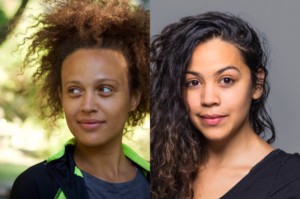

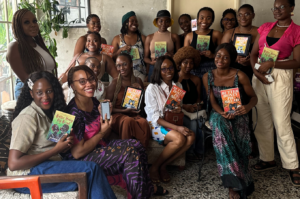
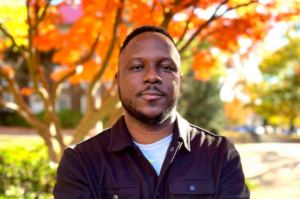
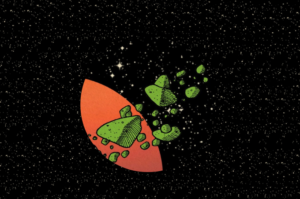

Kamogelo October 14, 2020 05:28
Thank you for the powerful and moving conversation. It is really thought provoking, as I think back on the kind of literature I consumed in my early years that left no impact whatsoever because, in many instances I could not relate with. Indeed literature oughts to re-invent itself in the future, find relevance not in a period but in life. I love your perspective on what dreams are, because we are told that we must follow our dreams but, what takes course in our sleep sometimes is nothing worth pursuing but, what our minds aspires and engages in while conscious, grips us and can propel us to take action. I would like to read more of your work Mr Okri. Your words were truly enlightening. Thank you at Brittle Paper and Ainehi Edor-Glines for sharing this.